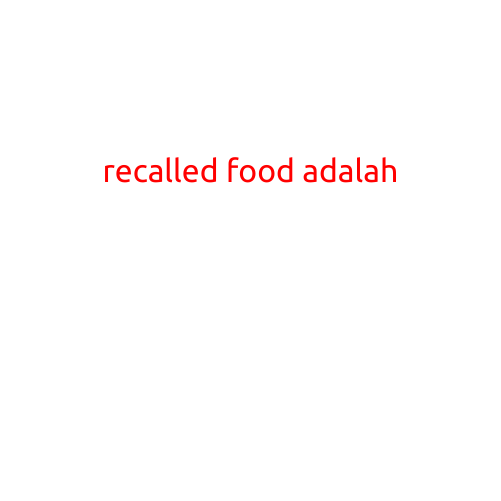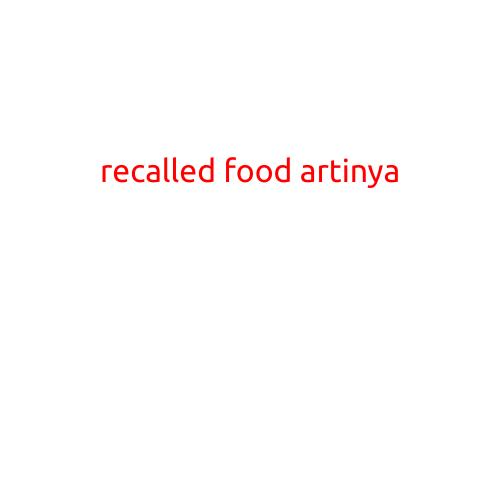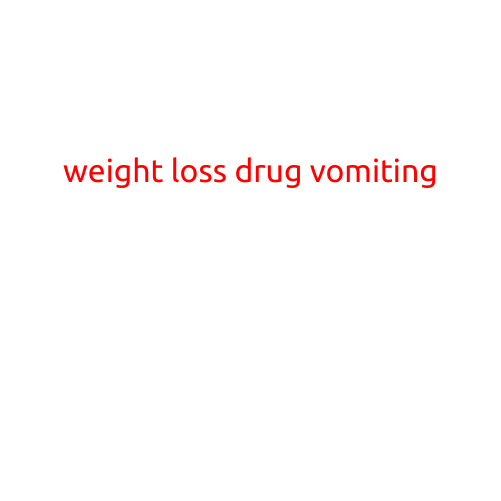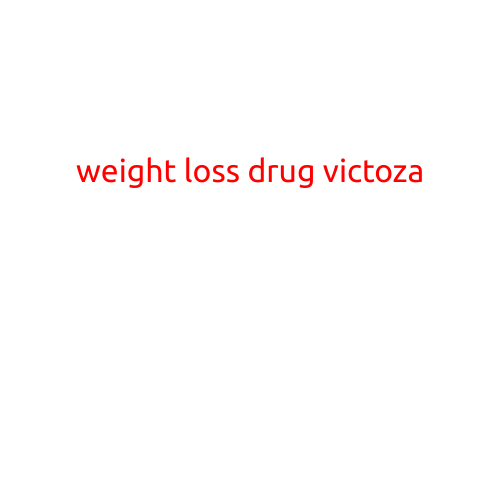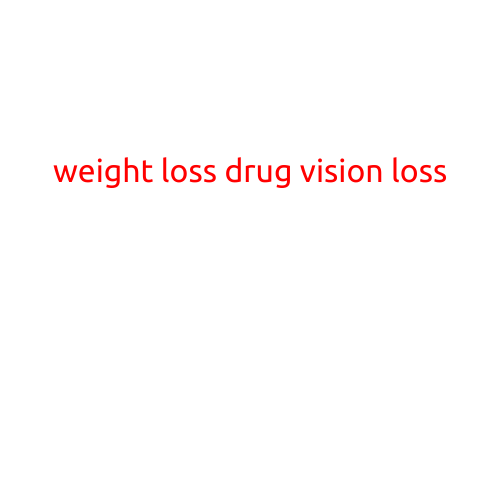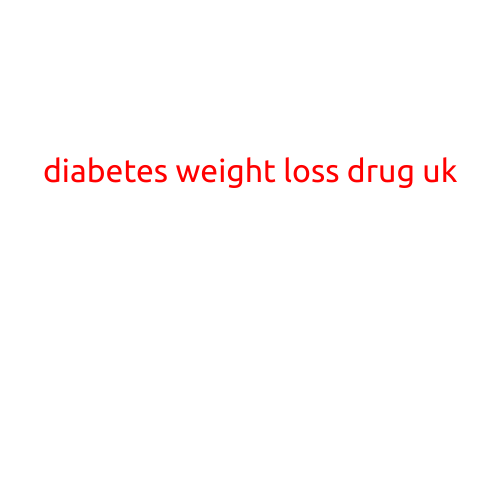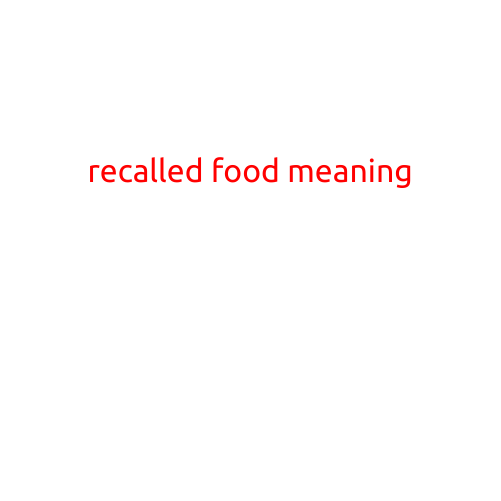
Recalled Food Meaning: Understanding the Importance of Food Recall
When you head to the grocery store or order food online, you expect what you buy to be safe and reliable. Unfortunately, sometimes foods can be contaminated, defective, or otherwise compromised, putting consumers’ health at risk. This is where food recalls come in. In this article, we’ll explore the meaning of recalled food, why it’s done, and what you can do to stay safe.
What is Recalled Food?
Recalled food refers to any food product that has been identified as having a potential health risk or defect. This can include everything from ready-to-eat foods like meat, dairy, and produce to packaged goods like cereal, snacks, and condiments. When a food is recalled, it means that it has been voluntarily or forcibly removed from the market by the manufacturer, distributor, or government agency due to safety concerns.
Why are Foods Recalled?
Foods are recalled for a variety of reasons, including:
- Contamination: Food can become contaminated with bacteria, viruses, or other microorganisms, which can cause illness or infection.
- Allergens: Food can contain unrecognized allergens, such as nuts, soy, or gluten, which can cause severe reactions or even anaphylaxis.
- Defective packaging: Food packaging can be torn, damaged, or compromised, allowing contents to become contaminated or spoiled.
- Chemical residue: Food can contain chemical residues from pesticides, heavy metals, or other contaminants.
- Overproduction: Food can be produced in excess, leading to spoilage and potential foodborne illness.
How are Foods Recalled?
Food recalls can happen at any stage of the supply chain, from production to distribution to retail. Here’s how it typically works:
- Consumer complaint: A consumer reports a problem with a food product, such as illness or contamination.
- Regulatory inspection: A government agency or regulatory body inspects a food facility or product and finds a potential problem.
- Manufacturer notification: The manufacturer is notified of the problem and is responsible for recalling the affected products.
- Public notification: The recall is publicly announced through official channels, such as the U.S. Food and Drug Administration (FDA) or the Centers for Disease Control and Prevention (CDC).
- Store removal: Retailers are notified and remove the recalled products from their shelves.
What Can You Do to Stay Safe?
While food recalls are an important step in ensuring consumer safety, there are steps you can take to minimize the risk of consuming recalled foods:
- Check food labels: Always check food labels for manufacture dates, expiration dates, and ingredient lists.
- Avoid buying in bulk: Avoid buying large quantities of perishable foods, as they may spoil or become contaminated.
- Store food properly: Store food in airtight containers and keep perishable foods at the correct temperatures.
- Report problems: If you experience any issues with a food product, report it to the manufacturer or regulatory agency.
- Stay informed: Stay up-to-date with food recall announcements and follow reliable sources for food safety information.
Conclusion
Recalled food is a serious issue that requires immediate attention to ensure consumer health and safety. By understanding the reasons behind food recalls and taking proactive steps to minimize risk, you can stay safe and enjoy the foods you love with confidence. Remember to always prioritize food safety and report any concerns to the relevant authorities.
